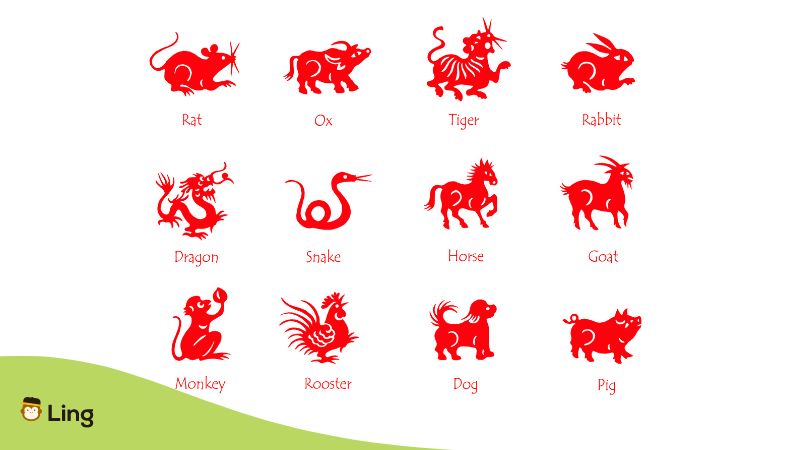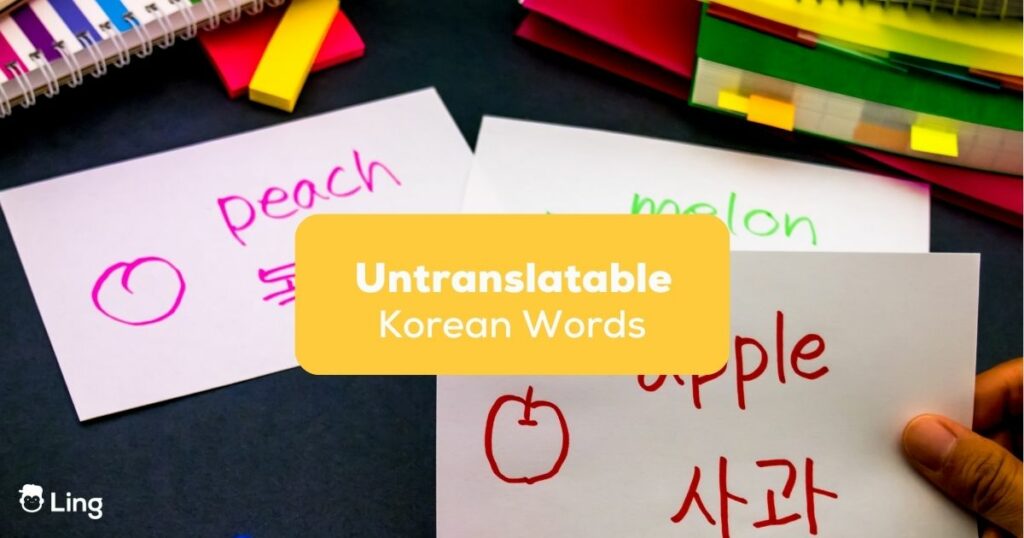Languages are unique in their incredible way. Despite having English as the universal way to communicate with all races, it’s interesting how certain words from different countries can’t be translated into other languages. In this post, we’ll rummage through untranslatable Korean words that pique your interest.
The Korean language has gained immense popularity worldwide thanks to its significant influence on the economy and Asian pop culture. It’s hard to overlook the allure of their mother tongue and culture. Through my exploration of K-pop, I’ve discovered a plethora of exquisite Korean words that offer a glimpse into their rich culture. Many of these words leave you eager to search for their translations. However, it may surprise you that there are untranslatable Korean words.
South Korean dramas and music play a vital role in showcasing the distinct aspects of their language, including specific grammar rules and phonetics. As you delve deeper into the language, you’ll realize that certain words simply cannot be directly translated into English. So, join us on this journey as we unveil these captivating untranslatable Korean words, which will deepen your fascination even further.
11 Untranslatable Korean Words To Discover
Plenty of beautiful Korean words can’t be translated into English. These words may not have direct translations, but conveying their meanings through contextual explanations or descriptions in English is often possible.
1. 한 (Han)
It’s a concept intricately woven into Korean culture that defies easy definition. Even native Koreans can’t precisely explain this word! But to give you an idea of what this word is, it’s a complex feeling encompassing a range of emotions, including sadness, sorrow, resentment, and longing.

2. 애교 (Aegyo)
Interestingly, the internet translates this word into “attractiveness” when its literal meaning refers to being lovely. In several Netflix K-Dramas, you may hear one of the characters asking to do an 애교 or have famous artists act cute or lovely. This means that the word refers to expressions considered cute, whether through changing their voice or doing adorable facial expressions and gestures.
3. 정 (Jeong)
Do you know anyone who’s named Jeong? This word holds much value in Korean culture as it refers to loyalty and a strong emotional connection with people and their surroundings. Some may call it a shared destiny or bond, but one thing’s sure: it goes way deeper and stronger as time goes by, and it overpowers love and friendship.

4. 눈치 (Nunchi)
Here’s another word that’s vaguely translated online. If you paste it into a translator, it gives you “sense” as a direct translation, but you don’t know that it runs deeper than you think. This word refers to the ability to understand someone’s feelings or intentions by reading their facial expressions, body language, and overall atmosphere. Do you think that you have this eye force or power?
5. 빨리빨리 (Ppali-Ppali)
You may not be surprised to hear this word, right? Several dramas have showcased this word many times to the point that even foreigners already know it! It may refer to the sense of urgency or the desire to do things quickly or immediately. So, if you ever hear someone say pali-pali (빨리빨리), you better act quick, or else you might see a flying slipper on your way.

6. 썸타다 (Sseom Ta Da)
This is one of the many aesthetic Korean words that capture the excitement, uncertainty, and anticipation that often accompany the early stages of a romantic connection. It signifies a state of romantic interest where two people are testing the waters and trying to determine their compatibility and intentions toward each other.
Here’s a quick breakdown of these two words:
- Sseom (썸). This term refers to something that represents a romantic relationship or attraction between two people. It’s more than friendship but falls short of a committed romantic partnership.
- Ta-da (타다). It’s a term that comes from the Korean verb “타다” (tada), which means “to ride” or “to hop on.” If you interpret it differently, it’s like this word metaphorically speaks about embarking on an emotional ride or journey together, exploring the possibilities of a romantic relationship.
7. 정성 (Jeong-Seong)
One of the most common words used by Koreans during conversations is Jeong-Seong. It refers to sincere and wholehearted effort, care, and dedication put into something, often associated with craftsmanship or preparing food. So, if your mom ever prepared you a good meal, it means that she’d put on great effort for you. Don’t forget to express gratitude!

8. 띠동갑 (Ttee Dong Kab)
Do you believe in Chinese Zodiac signs? If you didn’t know, these signs follow a twelve-year cycle in which people who are born in the same year have the same animal sign and the same traits. People with similar signs are said to be the-dong-kab.
9. 내숭 (Nae-Soong)
Here’s a magic trick before we tell you what this means. By the end of this paragraph, you’ll have someone in mind who acts like this and probably laugh out loud. Nae-soong (내숭) refers to a fake person; it’s usually used to describe a Korean woman who acts differently around Korean men. She acts very naive or timid, but once the guy’s gone, she returns to her normal self. Sounds like a shape-shifter, right?
10. 엄친아 (Eom-Chin-A)
Korean mothers or some Asian moms can be harsh to their children sometimes. They often compare their children to their friend’s children saying how talented or better they’re than their children. Among all the untranslatable words on this list, this is the most unappealing one.
Fortunately, these days this word is only used to describe someone who comes from a good background. A kid who never caused trouble.

11. 온돌 (Ondol)
Have you ever heard of Ondol? It literally translates to “Heated rock” in English, but it actually means “Underfloor heating.” It’s used to describe direct heat transfer using burning wood to generate heat for warming the surface of a dense stone floor. Koreans typically use this method to stay warm during the cold seasons in South Korea.
Want To Discover More About The Korean Language? Try Ling Today!
These Korean words are a few of the many words that don’t have an exact meaning in English. It’s fascinating to see how complex a language can be. This string alone can push you to learn Korean but how, but how do you start? Luckily, Ling can be your buddy to start your journey.
With the app, the confusing maze of learning a new language becomes easier. You can take quizzes and exercises to make familiarize yourself better with the language you’re interested in. While using it for 15 minutes daily also helps to master any of the 60+ languages you picked easily. Download Ling on Play Store and App Store for FREE to enjoy these benefits today!



































































